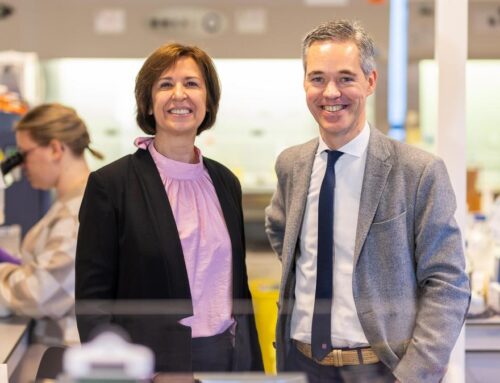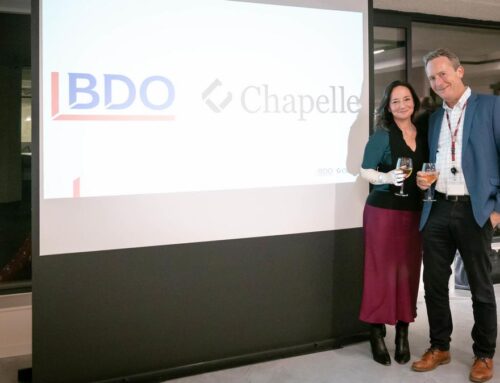Programme Law contains 7 new tax measures
The federal government approved the Programme Law on 20 December 2020 – and, at the same time, 7 new tax measures. The measures entered into force on 1 January 2021. Some of them already had an effect in 2020. We provide an overview.
Delphine Vanassche, Senior Manager BDO Tax
1. Family taxation
Today, the cost of childcare for children up to 12 years of age (or 18 years of age for children with a severe disability) brings with it an entitlement to a tax credit of up to EUR 11.20 per day. For single persons, this credit can be extended to 30% (depending on income). The maximum amount of the tax credit is being increased to EUR 13.00 for the 2020 income year and to EUR 13.70 for the 2021 income year. The age limits are also being increased from 12 to 14 years and from 18 to 21 years. Finally, as from 1 January 2021, the costs of professional home care for sick children will also be eligible.

“Tax expenditure not indexed for 4 years.”
The tax-free sum for the taxpayer who takes in a dependent family member older than 65 to care for them will also be increased to EUR 4,900 (for the 2021 tax year). Although the government is increasing the allowance, the measure will be reserved for family carers: i.e., the taxpayer who has a dependent grandparent, parent or sibling who has reached a particular age and is in need of care.
2. Indexation freeze tax expenditure
The government has decided to temporarily freeze the indexation of tax expenditure as from income year 2020 until 2023. This means that, for many tax reductions, the amounts remain at the level of the 2019 income year.
For the 2020 income year, the indexation freeze for pension savings is postponed until 2021. Thus, pension savers who have already saved the maximum amount of EUR 990 are entitled to a tax reductions of 30%. The same rule applies to a saved amount of EUR 1,270 with a tax reduction of 25%.
3. Higher excise duties on tobacco products
In order to discourage the consumption of cigarettes and tobacco, the government decided to increase the excise duties on these products as from 1 January 2021. The aim is to discourage smoking in order to achieve a smoke-free generation.
4. Tax authorities can view the balance in taxpayers’ bank accounts in the Central Point of Contact (CAP).
The CAP is a database containing the bank account numbers and types of contracts held by natural persons and legal entities, whether or not residing in Belgium, with financial institutions in Belgium. More specifically, it contains the following information:
Since 31 December 2020, the tax authorities have also been able, without a mandatory request in the Central Point of Contact (CAP) managed by the National Bank of Belgium (NBB), to view the balance of all bank and current accounts as well as the total amounts of securities accounts and surrender values of the investment insurance policies held by taxpayers.
5. 6% VAT on demolition and reconstruction of buildings
In the context of the economic recovery plan, the reduced VAT rate of 6% for the demolition of buildings and the reconstruction of housing is temporarily extended – from 1 January 2021 until 31 December 2022 – to the whole of Belgian territory.
In addition, the material scope was also extended from 1 January 2021. This measure distinguishes 3 categories:
In this way, property developers who realise projects with a view to selling them as from 1 January 2021 can also benefit from the reduced rate.
For each category, the demolition and reconstruction must take place on the same cadastral plot. However, a number of actions are excluded from the reduced rate. Examples include work on immovable property and other actions that do not relate to the actual dwelling, such as building works, landscaping and erecting fences, or actions that relate to swimming pools, saunas, mini-golf courses, tennis courts and the like, as well as cleaning the dwelling.
For each category, there are also a number of conditions and formalities to be fulfilled. For example, the project for an end-user must concern the end-user’s only home with a total habitable area of up to 200 m². Housing intended for social rental must be rented by the client to a social rental agency as soon as the work has been completed, or rented as housing under a management mandate granted by the client to a social rental agency for a period of at least 15 years.
The sale of housing by building developers at the reduced rate concerns either a house that is intended for use by a natural person as his or her only home or a house intended for social housing rental as indicated above.
6. Increase in investment tax credit extended
The existing increased investment tax credit for SMEs from 8% to 25% is extended until 31 December 2022. Also, for the fixed assets acquired or created until 31 December 2021, an extension of the transfer is provided for the two following taxable periods.
7. Training of employees
To encourage companies to offer their employees more training hours than the legal minimum, the employer can, under certain conditions, receive a reduction in the withholding tax. This reduction amounts to 11.75% of the employee’s monthly remuneration (a maximum gross salary of EUR 3,500 is taken into account).
Companies that offer employees an extra 10 days of training receive a reduction in withholding tax.
The employee in question must have been employed for at least 6 months and the training (or additional training), at the employer’s expense, must concern 10 days during an uninterrupted period of 30 calendar days. More flexible conditions apply regarding the duration of the training for employees of SMEs and shift and night workers.



















